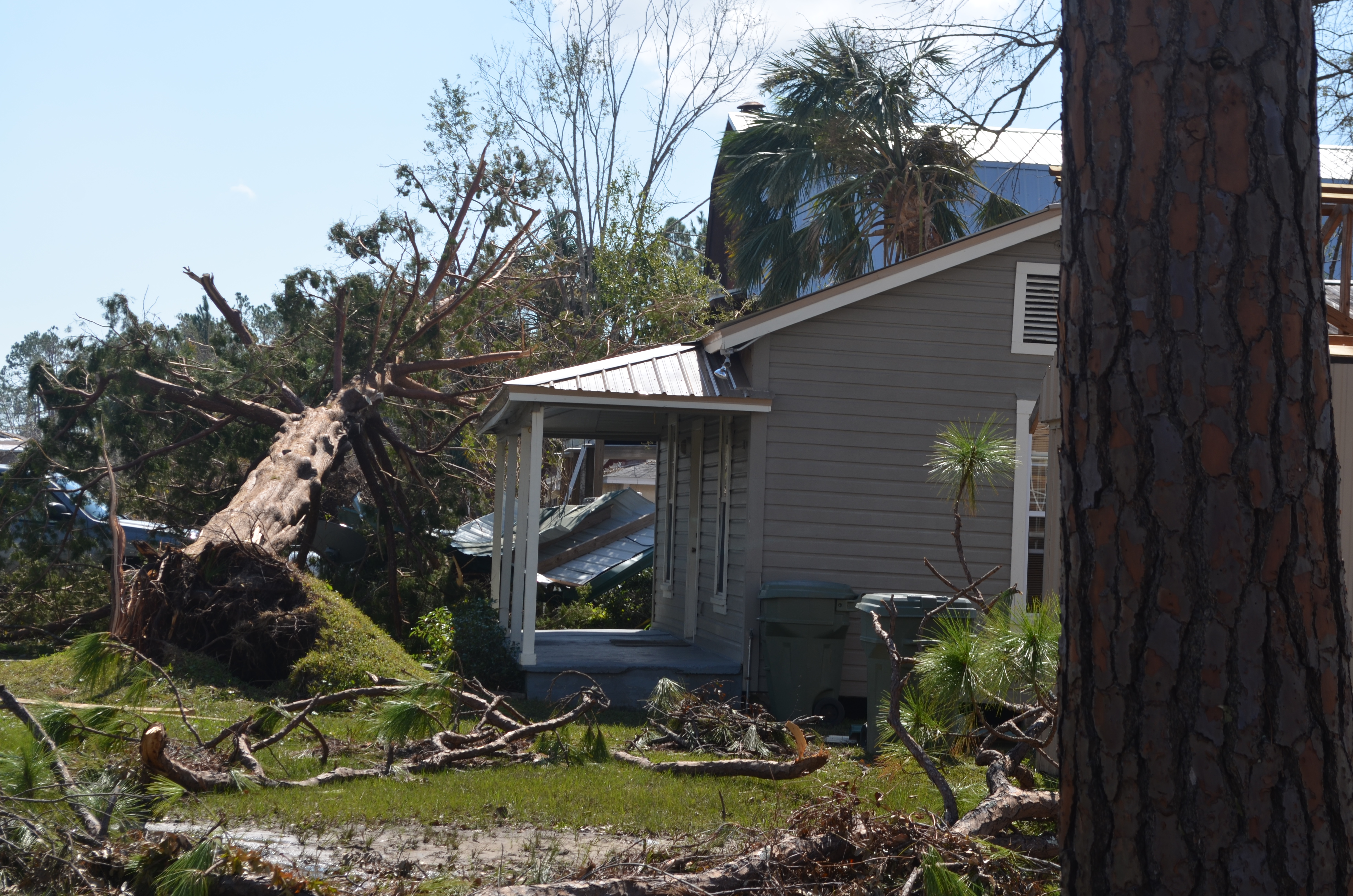AARP Hearing Center

Hurricane Michael devastated much of Florida's eastern Panhandle region on Oct. 10, inflicting billions of dollars in damages in a few hours. For Floridians age 50-plus, for family caregivers and for North Florida communities, recovery will take years.
To help equip you with the information you need to get back to where you were, AARP has collected this short guide to resources that could be particularly helpful for Floridians 50-plus.
- Have you lost power in the storm and now aren't sure about what to do with food in your refrigerator or freezer? AARP has collected some tips on what to keep and what to throw out.
- Homes that suffered rain or flood damage may seem OK at first, but mold problems can develop later. The Centers for Disease Control has some helpful tips available.
- If you had flood or wind damage and want to file a claim under your homeowner's insurance, first try calling your insurer at the number listed on your homeowner's policy. If you have trouble figuring out whether your policy provides coverage, try the Florida Chief Financial Officer's website, which offers helpful tips, or call them at 1-877-693-5236.
- Go here to learn more about the kinds of government assistance you may be eligible for.
- If you had repair costs from the hurricane that your insurance did not cover, you may be eligible for FEMA Individual Assistance aid. Go here to learn more. In general, FEMA Individual Assistance provides up to $33,000 to repair a home to a safe and sanitary condition, but not to its original condition. If you later receive an insurance settlement that covers the cost of repairs, you may be required to repay FEMA Individual Assistance aid.
- If you need to borrow to pay for home repair, temporary housing or other housing costs, you may be able to qualify for a Small Business Administration disaster-recovery loan. SBA loans can offer lower interest than commercially available loans. Learn more about these loans here.
- You also may be eligible for emergency unemployment assistance, for assistance to dislocated workers or SBA "bridge loans" to help small businesses stay open while the area recovers. Learn more here.
Once hurricane season is behind us, the temptation is to forget about it until next year. A better idea is to prepare now -- it will save you time and money later. Here's our list of tips and resources.
Losing power in a storm is a hassle that many Floridians don't want to put up with anymore. Some have decided to buy electrical generators to keep the lights on -- and the refrigerator cool -- when the next storm comes. Generators can be great tools, but they also can be dangerous. Learn more about how to use them safely.
Natural disasters can bring out the best in people, as Americans donate and work to help others. But it's also a time when scam artists are lurking, trying to defraud you. That's certainly true of home-repair fraud after a major hurricane. AARP has put together some tips to help you ward off fraud.































































